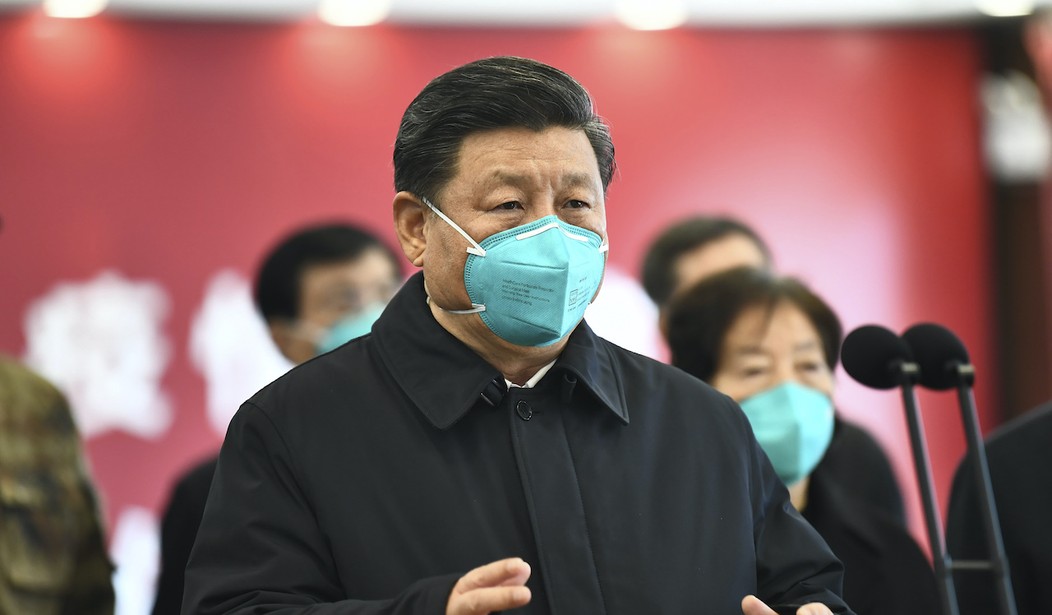There are lockdowns and there are lockdowns.
In a western-style lockdown, non-essential businesses are shuttered. Supermarkets and pharmacies remain open, and of course you’re encouraged to get some sunshine outdoors. In a Chinese lockdown, everything’s shuttered. You stay home until you’re told not to. And if you happen to test positive — or live near someone who does — you might just be whisked off to a “quarantine center” concentration camp until the outbreak has subsided.
How do Chinese residents buy daily necessities during a lockdown like that? Good question. They’re wondering the same thing.
The unfortunate city that’s getting the Wuhan treatment from Beijing this week is Xian, home to 13 million people (and China’s famous sculptures of terracotta warriors). They had a small outbreak of what’s believed to be the Delta variant, recording around 1,200 cases in December. That’s the biggest official count China has seen since early 2020 and even a small outbreak is a threat to a regime that regards “zero COVID” status as proof of its superiority to western governments. They aim to prove that only the Chinese Communist Party has the will and know-how to contain a virus let loose on the world by, uh, the Chinese Communist Party. And with the Olympics set to begin in a month, they’re willing to use any measures needed to limit transmission. The last thing Xi Jinping wants as global media shift its attention to China for the Games is COVID suddenly running loose.
Which means, if you happen to live in Xian, you’ve been walled off for two weeks with no end in sight.
Shortages of food and medical care have worsened over the past 12 days since officials sealed off the city of 13 million people in an effort to stymie the flareup that has already led to more than 1,600 infections. More posts are starting to emerge on Chinese social media criticizing the government’s poor management and complaining that access to food is extremely limited…
Some residents in Xi’an have started bartering food and cigarettes amid the shortages, according to posts seen on social media. Residents have been asked to remain inside their homes, with one family member allowed to leave every other day in a sometimes fruitless effort to find supplies. Others criticized the authorities for prioritizing residential compounds where government officials live.
Cigarettes for cabbage, sanitary pads for vegetables, even a Nintendo Switch for some instant noodles: That’s commerce right now in Xian, according to the BBC. How do they know that? Because, for some odd reason, Chinese authorities aren’t (entirely) censoring locals’ complaints about the lockdown on Weibo, the country’s massive social media platform. Photos of the bartering are being posted and residents are being allowed to complain about a return to “primitive society.” One wrote, “I’m about to be starved to death. There’s no food, my housing compound won’t let me out, and I’m about to run out of instant noodles … please help!” Reportedly the hashtag “Grocery shopping in Xi’an is difficult” had been viewed 380 million times as of yesterday.
Why would Beijing allow that, given the embarrassment to the regime? I can only guess that they view it as a lesson to Chinese citizens outside Xian that they too might be reduced to trading smokes for rice if there’s a COVID outbreak in their city, and so they’d better do everything they can to avoid one. But … what are they supposed to do? Isolate voluntarily to prevent transmission, at least until the Olympics are over? That could backfire inasmuch as someone who happens to find themselves with COVID symptoms might be reluctant to report it, knowing what would befall them and their city if they’re positive. Result: Infected people hiding their infection as they move about in public, exposing others to the virus.
According to the Journal, many supermarkets and hospitals in Xian are closed at the moment. You eat what the authorities deliver to you, assuming they deliver at all. If you’re faced with an emergency like a health crisis or starvation, you can take your chances by venturing outside. But it might not work well for you.
[A] video that went viral over the weekend showed a man being beaten by guards, with comments alleging that he had gone out to buy steamed buns on New Year’s Eve. Following an online outcry at the video, which showed the buns scattered on the ground, police said two guards had been detained, and that they had apologized to the man.
Another video circulated online showed firefighters having to climb over the newly blocked gate of an apartment complex to put out a fire.
One woman wrote on the social-media platform Xiaohongshu about losing her father to a heart attack, saying her initial calls for an ambulance went unanswered and by the time he was seen, it was too late. Xiaohongshu has since removed her posts, citing “negative content and misguiding society.” The woman didn’t respond to requests for comment.
One recent report on Chinese social media showed a fleet of buses arriving at a Chinese apartment complex at midnight to whisk away the residents to a quarantine facility. The facilities themselves are predictably drab, with rooms containing nothing more than bunk beds and tiny desks. It’s unclear what sort of outbreak would trigger a mandatory mass quarantine like that but the WSJ says it could be as little as a single person in an apartment building testing positive. City officials say they’re currently operating 387 quarantine centers housing almost 40,000 people.
And they won’t stop until there’s literally no community spread in the city. Zero tolerance.
Exit question: Which Asian country has had the most appalling COVID response, China — or Russia? They’re both awful, just awful in wildly different ways.







Join the conversation as a VIP Member